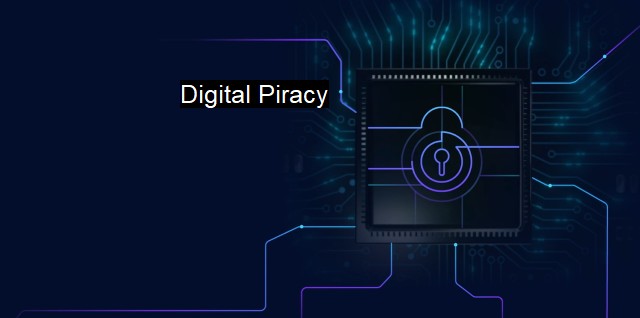What is Digital Piracy?
Digital Piracy in the Age of the Internet: Threats and Solutions for Creative Industries and Cybersecurity
Digital piracy is a term that describes the illegal use, distribution, or reproduction of copyrighted materials in a digital format. From a cybersecurity and antivirus perspective, digital piracy carries both ethical and security implications. As online communication platforms and technologies have advanced, piracy on the internet has become increasingly prevalent as an enhanced form of copyright infringement.Pirated content primarily includes software, video games, music, and motion pictures. Software and media such as these require significant resources to develop and produce, often protected under various terms of copyright law. within the digital landscape, a wide spectrum of platforms for illegally sharing this content has emerged. These platforms typically do not compensate the rights holders for the use or distribution of their media or software, leading to significant financial loss for copyright owners.
In addition to the ethical implications concerning theft of intellectual property, digital piracy poses substantial threats to cybersecurity. Many pirated software like cracked versions of paid programs or hacked versions of video games may contain viruses, malware, or spyware that could harm a user's device. illegally downloaded music, movies, or e-books can carry the same security risks. While it may seem attractive to obtain product freely, the use of such pirated software poses serious dangers to the user’s personal and financial information, potentially landing them in a catastrophic cybersecurity battle.
In terms of antivirus measures, pirated software usually suppresses the regular firmware updates that help rectify security loopholes in an application. This suppression can make the user's system vulnerable to hacking and data breach attempts, undermining even the most robust antivirus measures. antivirus programs may not secure devices entirely from threats associated with pirated software due to the inability to detect every single type of viral infection. Hence, the use of pirated software indirectly weakens the security shield originally encompassing the device.
Understanding and acknowledging the threats posed by digital piracy is not enough; it is significantly up to users to prevent it. Solutions can involve practicing ethical internet use – for instance, using platforms for media consumption that are licensed by copyright holders and subscribing to proprietary software rather than illegally downloading cracked versions. Many reputable software distributors release free versions or many offer student discounts, hence users have the opportunity to use genuine software at a lower price or even for free.
Public awareness about the severe consequences concerning compromised cybersecurity is another possible solution to combat digital piracy. Users need to be educated about the potential dangers associated with downloading non-verified software and media - from identity theft, loss of sensitive personal information, to devastating loss of financial assets. Awareness about the harsh legal penalties associated with piracy is also efficient in deterring potential illegal downloaders.
Government agencies, software producers, and rights organizations can collaborate in campaigns geared towards consumers to shed light upon the contributory role they play in promoting digital piracy, the resulting financial loss to the creators, and potential cybersecurity threats coming with it.
On a global scope, intergovernmental collaboration is necessary to reduce digital piracy. Politically instigated agreements can assist in these matters by enforcing legal consequences for piracy activities.
From an antivirus perspective, doubling down on security measures can also contribute to hampering pirated content's negative effects.
Digital piracy is a severe issue with wide-ranging implications touching on ethics, security, and the global economy. Society needs to be vigilant about internet use and conscientious in respecting copyrighted content. Greater emphasis should be placed on educating individuals on the dangers of digital piracy and how to protect their digital assets. Digital piracy is not simply a matter of ‘free content; the costs are simply transferred elsewhere and eventually feed into catastrophic cyber vulnerabilities or financial losses in the innovative sectors.

Digital Piracy FAQs
What is digital piracy?
Digital piracy is the unauthorized use, theft, or distribution of copyrighted digital material, such as music, movies, software, and games.What are the consequences of digital piracy?
Digital piracy can result in legal penalties, including fines and potential imprisonment. It also hurts content creators and the industries that rely on their work, as they lose revenue and may be forced to downsize or close their businesses.What are some common types of digital piracy?
Some common types of digital piracy include peer-to-peer file sharing, torrenting, using cracked software, and streaming copyrighted content without permission.How can I protect myself from digital piracy?
To protect yourself from digital piracy, avoid downloading or sharing copyrighted material illegally. Use trusted anti-virus software to scan your computer for potential threats and regularly update all software and operating systems to ensure they are up-to-date and secure.| | A | | | B | | | C | | | D | | | E | | | F | | | G | | | H | | | I | | | J | | | K | | | L | | | M | |
| | N | | | O | | | P | | | Q | | | R | | | S | | | T | | | U | | | V | | | W | | | X | | | Y | | | Z | |
| | 1 | | | 2 | | | 3 | | | 4 | | | 7 | | | 8 | | |||||||